Dave White, Climate Change Truth Inc, United States
In this research manuscript, the authors seek to answer four essential questions relative to the current climate change conversation now underway globally: (Q1) What is the numerically defined goal for annual Net Zero Carbon Dioxide Emissions in gigatonnes essential for global at [....] » Read More



















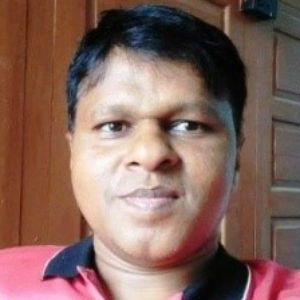












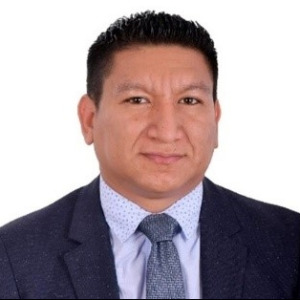

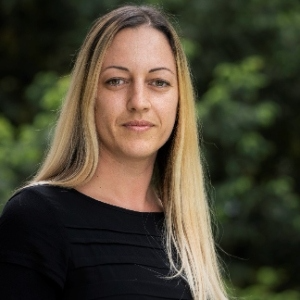







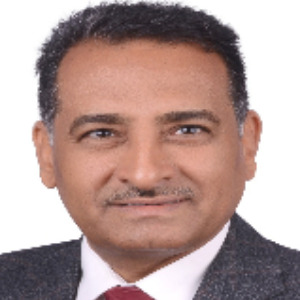











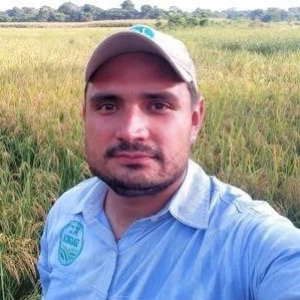






Title : Suitaiology: Technical goals and general concept designing for applications in mountain areas
Dachang Zhang, National Research Center for Geoanalysis and Water & Eco Crisis Foundation, United States
Water is the source of life, but driven by natural forces, its natural characteristics manifest as a process of "planation" that reshapes the terrain. Therefore, the humanistic pursuit based on existing patterns inevitably leads to conflict with this process. As a compl [....] » Read More
Title : Development and application of biocontrol mechanism of cucumber fusarium wilt: Harnessing microbiome engineering for sustainable horticultural production systems
Ahmad Ali, Florida A&M University, United States
Horticulture production requires high inputs of pesticides to control destructive pathogens. However, the recent rules on plant protection are promoting alternative means to synthetic pesticides as a result of environmental pollution, residues in agricultural products and pathoge [....] » Read More
Title : Farm safety day camp programming for youth
Jason A Hedrick, The Ohio State University, United States
In response to the youth agricultural related injury statistics and public concern, The Ohio State University has coordinated annual Farm Safety Day Camps for 3rd grade students, reaching over 13,000 youth since its inception. The goal of the day camp is to bring farm safety issu [....] » Read More
Title : Understanding the perception of millet consumption in Nigeria: A structural equation model approach
Ademiku Adeleye, University of Edinburgh, United Kingdom
Millet, a staple food with significant nutritional and environmental benefits, has experienced a decline in consumption in Nigeria due to various socio-economic and cultural barriers. This study employs Structural Equation Modelling (SEM) to investigate the factors influencing mi [....] » Read More
Title : Plant-microbe synergies in mitigating nitrous oxide emissions from grazed pastures
Roselyne Aleyo, Massey University and Agresearch Grasslands Campus, New Zealand
Nitrous oxide (N2O) emissions from grazed pastures contribute significantly to global greenhouse gas emissions, primarily from urine and dung deposited on the land (~50-70%). Despite years of soil-focused research, the role of plant traits in influencing N2O cycling remains large [....] » Read More
Title : Sub-surface heating of farmland to promote early harvest and increase productivity in Northern Sweden
Jenny Lindblom, Lulea University of Technology, Sweden
During the last decades, farmers in the North of Sweden have been struggling with declining profits of their produce forcing many family farms into liquidation or closing. As a result, the farmed land area in the North has been shrinking continuously with about 1% each year since [....] » Read More
Title : The future of modern agriculture: IoT, AI and block chain technology for sustainable farming and agribusiness
Loucas Protopappas, Agricultural University of Athens, Greece
The need for new e-Government services in the European Union has been clear since the late 20th century. The EU aims to foster reliable and advanced e-Government systems that work on local, national, and international levels. Member states are encouraged to update and modernize e [....] » Read More
Title : Beyond the frontrunners: Understanding adoption of digital agricultural technologies
Caroline Van Der Weerdt, TNO, Netherlands
Despite the potential of digital agricultural technology solutions (DATSs) to increase farm viability, sustainability and farmer wellbeing, only a minority of frontrunners seems to structurally embed these on the farm. Average European adoption figures point to a rate of around 6 [....] » Read More
Title : A new direction in the use of wheat in agricultural processing
Elzbieta Wojtowicz, Institute of Agricultural and Food Biotechnology - State Research Institute, Poland
Wheat is a valuable ingredient in many food products, and wheat harvest surpluses can be used to create new solutions for the agricultural industry. Due to the fact that the amino acid profile of cereals is not fully valuable for animal feeding, the most common way to improve the [....] » Read More
Title : Characteristics of new solid and liquid feed products based on wheat and pea
Joanna Le Thanh Blicharz, Institute of Agricultural and Food Biotechnology - State Research Institute, Poland
Wheat grain constitutes a vital source of plant-based nutrition for humans. Wheat is valuable ingredient in many food products, and wheat harvest surpluses offer opportunities for innovative solutions within the agricultural industry. Due to the fact that the amino acid profile o [....] » Read More
Title : Beyond high-tech: Finding the right solutions for sustainable vertical farming in Singapore
Chow Kheong Keat Gregory, Ngee Ann Polytechnic, Singapore
Singapore faces a pressing challenge in securing its food supply amidst rapid urbanization, climate change, and land scarcity. Historically reliant on food imports—constituting 90% of its consumption—the nation has aggressively pursued urban agriculture and vertical f [....] » Read More
Title : Use of artificial intelligence in Brazilian agribusiness: Challenges and opportunities
Luisa Paseto, CPA IARA USP, Brazil
Artificial Intelligence (AI) has been employed to analyze vast volumes of data related to climate, soil, and agricultural practices, enabling producers to make more informed decisions. Predictive modeling tools present opportunities and have assisted in determining the optimal ti [....] » Read More
Title : Soil physical property assessment of large-scale paddy fields using autonomous robots
Munehiro Ebato, Institute for Agro-Environmental Sciences, Japan
In recent years, due to the effects of climate change, intense rainfall exceeding 50 mm per hour has become more increasing. Large-scale flooding caused by linear rainbands and massive typhoons occurs almost every year somewhere in Japan. Agricultural fields are also suffering si [....] » Read More
Title : Strategies for water savings and agricultural enhancements in arid regions
Khalil Ur Rahman, Ruler of Dubai Agriculture innovations Wing, United Arab Emirates
Arid and semiarid regions account for almost 40-45% of the Earth’s total land surface, and these areas are highly prone to salinization due to low rainfall and improper water management practices. Salinity and drought, two very closely associated abiotic stressors, negative [....] » Read More
Title : Photochemical analysis on wild vine (Vitis vinifera ssp. Silvestris) grape genotypes
Dilek Karatas, Dicle University, Turkey
This research, was conducted to determine the phytochemical properties of 8 wild vine genotypes (E1, K1, L7, M1, M2, M5, M6, P1) in the protected wild vine (Vitis vinifera ssp. silvestris) parcel in the viticulture research and application area of Dicle University Faculty of Agri [....] » Read More
Title : Morphologic and transcriptomic response of two libyan wheat germplasms in the form of P5CS, and PEPCs genes under salt stress and some nutrient additions
Omar Sulaiman Belhaj, The University of Texas at El Paso, United States
The study has been conducted to find the effects of salt stress and nutrient additions (Iron and potassium) on growth, yield, proline-5-carboxylate synthase (P5CS), and phosphoenolpyruvate carboxylase (PEPCs) Genes, and gene expression of two Libyan bread wheat varieties. A facto [....] » Read More
Title : Multi-fluorescent silk as a minimally invasive indicator of surgical recovery
Kailey Lin, Sacred Heart Cathedral Preparatory, United States
The precise and effective evaluation of surgical recovery presents significant challenges in the medical field, and current methods for evaluating recovery can be invasive, subjective, and expensive. Fluorescent silk, produced by an altered silkworm diet, has been proposed to hav [....] » Read More
Title : Species proportion modulates biomass allocation, nitrogen dynamics and soil biogeochemistry in rye–vetch intercropping systems
Paola Ganugi, University of Turin, Italy
Intercropping cereal–legume species is a well-established strategy to enhance agroecosystem sustainability, yet the influence of species proportion on plant performance and below-ground processes remains incompletely understood. In this study, we investigated how varying th [....] » Read More
Title : Biogeosystem technique methodology for chemical-soil-biological engineering
Valery P Kalinitchenko, All-Russian Phytopathology Research Institute, Russian Federation
Current “Ecosphere – technology” conflict stems from an environmental, agricultural and chemical management outdated technological platform based on an attempt to imitate natural phenomena in technology root case. A standard chemical-technological system hierarc [....] » Read More
Title : Application of vermicompost mixed with inert materials during the development of vegetables and cucurbits in protected systems
Alejandro Moreno Resendez, Antonio Narro Autonomous Agrarian University – Laguna Unit, Mexico
The need to reduce or eliminate the use of synthetic fertilizers, used to generate high yields in response to the high demand for food from a constantly growing population with less available arable land, without considering their efficiency, their significant polluting potential [....] » Read More
Title : Soil fumigation prevents soil-borne diseases and its effects on soil microorganisms
Wensheng Fang, Institute of Plant Protection Chinese Academy of Agricultural Sciences, China
Soil fumigants, recognized for their strong diffusion in soil and broad-spectrum inhibition of pathogens, have become an effective method for controlling soil-borne diseases before planting. However, the processes governing the succession and regulation of microbial communities a [....] » Read More